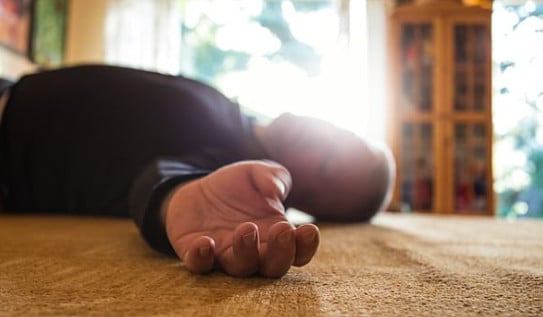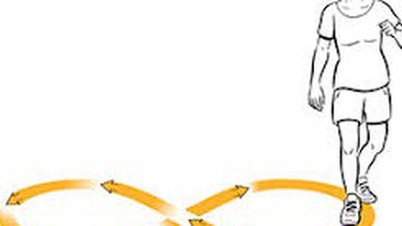According to the National Institute of Neurological Disorders and Stroke (NINDS), fainting occurs when blood flow to the brain changes suddenly. It's often caused by low blood pressure and the heart not pumping enough oxygen to the brain, according to Today .
The U.S. National Library of Medicine notes that fainting is usually nothing to worry about, but sometimes it can be a serious problem.

If you begin to feel lightheaded, dizzy, or nauseous, it is best to sit or lie down immediately.
Fainting can be completely benign, like a slight dizziness at the sight of blood, but it can also be life-threatening, like an irregular heartbeat, said Dr. Torree McGowan, an emergency physician from the American College of Emergency Physicians.
The consequences of sudden fainting can be very serious, including skull fractures and brain injuries, Dr. McGowan added, according to Today.
Signs of fainting
Dr. McGowan notes that most people experience symptoms when they are about to faint. These include:
- Dizziness, vertigo, nausea, according to Today.
- Cold sweats
- Unusual changes in vision such as feeling like you're in a tunnel, blurred or dark vision or seeing spots, dilated pupils.
- Feeling hot, flushed, or tingling all over
- Purple
- Shortness of breath.
What to do to avoid fainting?
If you start to feel lightheaded, dizzy, nauseous, or any of the other symptoms listed above, it's best to sit or lie down immediately, advises Dr. McGowan.
This helps blood circulate to the head, protecting the brain and minimizing injury if you faint.
Another way is to try stretching your muscles to increase your blood pressure.
The NINDS recommends clenching your hands into fists, crossing your legs, squeezing your thighs together, and tightening your arm muscles.
How to wake up if you faint
The NINDS notes that fainting can last 1 to 2 minutes before the person regains consciousness.
The patient should lie down for 10-15 minutes in a quiet, cool place or sit with the head between the knees. Drinking cold water is also helpful.

Fainting is usually nothing to worry about, but sometimes it can be a serious problem.
Causes of fainting
Dr. McGowan points to several reasons:
- Seeing blood
- Eating or drinking too little, dehydration - are especially common causes in summer. Heat can cause heat stroke.
- nervous
- Straining too hard during bowel movements can cause dizziness.
- Cough - some people cough until they faint.
- Low blood sugar
- Standing up suddenly - orthostatic hypotension or postural tachycardia syndrome also causes dizziness.
- Taking medications or supplements that have side effects that lower blood pressure.
Heart rhythm problems are the most serious cause of fainting and often come without warning, says Dr. McGowan. They're more common in older adults or people with heart disease, according to Today .
Dr. Robert Wachter, Dean of the School of Medicine at the University of California (USA), also noted that pouring hot water on someone who is dehydrated or has a cold can cause blood vessels to dilate, leading to a dangerous drop in blood pressure that can also cause fainting.
If you faint for no apparent reason, seek medical attention promptly, advises Dr. McGowan.
Source link









































































































Comment (0)